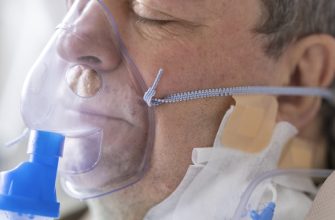- The Vital Role of Oxygen in Cellular Function
- How Oxygen Supports Physical Performance and Endurance
- Oxygen and Mental Health: Breathing for Better Mood
- The Connection Between Oxygen Levels and Immune Function
- Oxygen Therapy: Benefits and Uses for Health Improvement
- Understanding Hypoxia: The Risks of Low Oxygen Levels
The Vital Role of Oxygen in Cellular Function
Oxygen plays a crucial role in maintaining cellular functions, which are essential for overall health and well-being. Every cell in the body requires oxygen to perform its metabolic processes effectively. Without adequate oxygen levels, cellular respiration becomes inefficient, leading to a decline in energy production.
The process of cellular respiration primarily takes place in the mitochondria, the powerhouse of the cell. During this process, oxygen is utilized to convert glucose into adenosine triphosphate (ATP), the energy currency of the cell. This energy is vital for numerous cellular activities, such as:
- Muscle contraction
- Cell growth and repair
- Immune system function
- Hormone production
- Detoxification processes
Furthermore, oxygen is critical for the synthesis of various biomolecules, including proteins and nucleic acids. A deficiency in oxygen can impair these processes, leading to cellular dysfunction and various health issues. For instance, reduced oxygen levels can result in fatigue, weakened immunity, and even chronic diseases.
Maintaining optimal oxygen levels is essential for fostering a healthy environment for cells. This can be achieved through regular physical activity, a balanced diet rich in antioxidants, and ensuring proper hydration. By supporting oxygen delivery throughout the body, individuals can enhance their overall health and well-being, promoting effective cellular function.
How Oxygen Supports Physical Performance and Endurance
Кислород играет ключевую роль в поддержании физической работоспособности и выносливости организма. Он необходим для эффективного функционирования всех клеток, особенно мышечных клеток, которые требуют значительных объемов кислорода во время физических нагрузок.
При физической активности, особенно аэробной, кислород используется для метаболизма углеводов и жиров, что обеспечивает организм энергией. Этот процесс, называемый аэробным дыханием, происходит в митохондриях клеток и позволяет увеличить продолжительность и интенсивность физических упражнений.
- Кислород способствует улучшению кровообращения, что увеличивает доставку питательных веществ к мышцам.
- Он помогает выводить углекислый газ и другие токсины, образующиеся во время физической активности.
- Наличие достаточного количества кислорода снижает вероятность усталости и повышает уровень энергии.
- Кислород улучшает работоспособность сердечно-сосудистой системы, увеличивая выносливость и общую физическую форму.
Оптимальное поступление кислорода во время тренировок также влияет на восстановление организма после нагрузки. Увеличение кислородного обмена способствует быстрому восстановлению мышц и снижению болезненности после интенсивных упражнений.
Таким образом, кислород является неотъемлемым элементом для достижения высоких результатов в спорте, а также для поддержания общего уровня здоровья и физического состояния. Увеличение кислородной емкости организма позволяет не только улучшить физическую работоспособность, но и повысить качество жизни в целом.
Oxygen and Mental Health: Breathing for Better Mood
Oxygen plays a crucial role in maintaining mental health and enhancing overall well-being. The relationship between oxygen and mood is profound, as adequate oxygen levels are essential for optimal brain function. Insufficient oxygen can lead to feelings of lethargy, anxiety, and even depression, underscoring the importance of proper breathing techniques.
Breathing exercises can significantly improve oxygen intake, which in turn boosts mood and cognitive performance. Engaging in deep, conscious breathing helps to increase oxygen flow to the brain, promoting relaxation and reducing stress levels. The following benefits highlight how oxygen supports mental health:
- Improves concentration and focus by ensuring the brain receives enough oxygen.
- Reduces anxiety and stress, contributing to a calmer state of mind.
- Enhances mood by facilitating the release of endorphins.
- Promotes better sleep quality, which is vital for mental well-being.
- Increases energy levels, aiding in the overall mental clarity and resilience.
Incorporating regular breathing exercises into daily routines can lead to significant improvements in mental health. Simple practices, such as diaphragmatic breathing or mindfulness meditation, allow individuals to harness the power of oxygen to uplift their mood and enhance emotional resilience. By prioritizing proper oxygen intake, one can foster a healthier and more balanced mental state.
The Connection Between Oxygen Levels and Immune Function
Oxygen plays a crucial role in maintaining the body’s immune function. Adequate levels of oxygen are essential for the optimal performance of immune cells, which protect the body from infections and diseases. When oxygen levels are sufficient, the immune system can effectively respond to pathogens, producing antibodies and activating various immune mechanisms.
Low oxygen levels, often referred to as hypoxia, can severely impair immune responses. In such conditions, the body’s ability to fight off infections diminishes, making individuals more susceptible to illnesses. Studies have shown that oxygen deficiency can lead to reduced production of immune cells, particularly lymphocytes, which are vital for adaptive immunity.
- Oxygen enhances the function of phagocytes, cells that engulf and destroy pathogens.
- Adequate oxygen levels promote the production of cytokines, signaling molecules that facilitate communication between immune cells.
- Proper oxygenation supports the maturation of T-cells, essential for orchestrating immune responses.
Furthermore, oxygen is involved in the metabolic processes that fuel immune cells. These cells require energy to function, and oxygen is a key component in cellular respiration, allowing immune cells to generate the energy needed for their activities. In situations where oxygen is scarce, immune efficiency declines, leading to an increased risk of infections.
Maintaining optimal oxygen levels is therefore vital for overall health and immune resilience. Engaging in regular physical activity, ensuring proper ventilation, and considering altitude effects can help sustain adequate oxygenation in the body. This, in turn, supports a robust immune system, enhancing the body’s ability to fend off diseases and maintain overall well-being.
Oxygen Therapy: Benefits and Uses for Health Improvement
Кислородная терапия представляет собой важный аспект в поддержании здоровья и благополучия. Эта методика используется для улучшения общего состояния организма, а также для лечения различных заболеваний. Кислород является жизненно важным элементом, необходимым для нормального функционирования клеток и тканей, и его терапевтическое применение может значительно повысить качество жизни.
- Улучшение дыхательной функции: Кислородная терапия помогает людям с респираторными заболеваниями, такими как астма или хроническая обструктивная болезнь легких (ХОБЛ), облегчая дыхание и увеличивая уровень кислорода в крови.
- Ускорение заживления: Кислород способствует ускорению процесса заживления после травм и операций, улучшая восстановление тканей и снижая риск инфекций.
- Повышение выносливости: Спортсмены используют кислородную терапию для увеличения физической выносливости и улучшения спортивных результатов, так как кислород помогает повысить уровень энергии.
- Снижение стресса: Процессы, связанные с кислородной терапией, могут уменьшить уровень стресса, способствуя расслаблению и улучшая общее психоэмоциональное состояние.
- Лечение хронических заболеваний: Кислородная терапия может быть частью комплексного лечения заболеваний, таких как диабет или сердечно-сосудистые болезни, где поддержание нормального уровня кислорода является критически важным.
Использование кислорода в терапевтических целях имеет множество преимуществ. Методика кислородной терапии не только улучшает физическое здоровье, но и оказывает положительное влияние на психоэмоциональное состояние. Благодаря своей многофункциональности кислород становится незаменимым инструментом в современном лечении и профилактике различных заболеваний. Кроме того, кислородная терапия открывает новые горизонты в области альтернативной медицины, способствуя комплексному подходу к здоровью.
Understanding Hypoxia: The Risks of Low Oxygen Levels
Hypoxia, a condition characterized by insufficient oxygen levels in the body, poses significant risks to overall health. Understanding hypoxia is crucial as it can lead to a variety of health complications, particularly when oxygen levels drop below normal. The body relies on oxygen for cellular function, energy production, and organ health, making adequate oxygen levels essential for well-being.
- Causes: Hypoxia can result from various factors, including high altitudes, respiratory diseases, and environmental pollution. Each of these causes impairs the body’s ability to absorb or utilize oxygen effectively.
- Symptoms: Common symptoms of hypoxia include shortness of breath, confusion, rapid heartbeat, and fatigue. These signs indicate that the body is struggling to obtain sufficient oxygen, which can lead to more severe health issues.
- Health Risks: Chronic hypoxia can result in serious conditions such as heart disease, brain damage, and respiratory failure. Prolonged exposure to low oxygen levels can compromise vital organs and lead to irreversible damage.
- Prevention: Maintaining optimal oxygen levels is essential for health. Regular exercise, avoidance of smoking, and living in areas with clean air can help prevent hypoxia. Additionally, being aware of altitude changes and their effects on oxygen availability is important.
Recognizing the signs and risks associated with hypoxia is vital for health maintenance. Proper oxygen levels support not only physical health but also cognitive function and overall quality of life. Taking proactive steps to ensure adequate oxygen intake can significantly enhance well-being and prevent the negative impacts of low oxygen levels.








